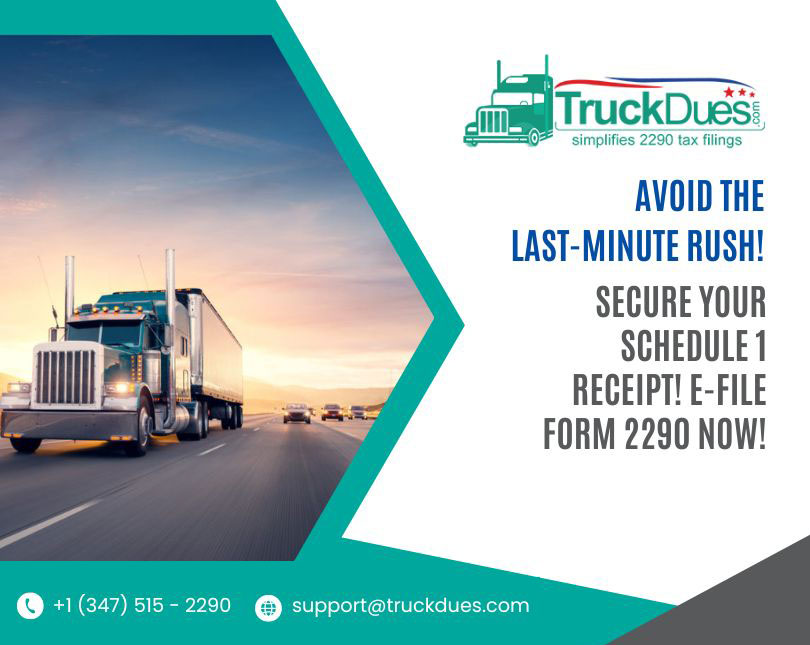Hello, truckers! Owning and operating trucks comes with a lot of responsibilities; among that, one important aspect is filing your Highway Heavy Vehicle Use Tax on time. Reporting your HVUT returns using the IRS Form 2290 every tax period can become tedious. However, you have to do it properly to ensure compliance with the law and get the stamped Schedule 1 receipt to operate your trucks on public highways smoothly. You should report your truck tax Form 2290 for TY 2024-2025 on or before September 03, 2024, and get the Schedule 1 receipt to fulfill your tax obligations. While reporting Form 2290, you must ensure that you do it accurately. If not, you will face a lot of problems, potential delays in tax processing, rejections, and severe IRS actions like penalties, license suspension, etc.

This blog post highlights some of the common mistakes truckers make while reporting Form 2290 HVUT tax reports. By understanding and rectifying these mistakes, you can ensure a smooth filing experience and avoid any unnecessary hassle from the IRS.
Double Check Your Details: The foundation of successful Form 2290 filing is providing accurate information. Though you prefer paper filing or E-filing Form 2290, even a minor typo can mess up your entire tax report, leading to delays and rejections. Here are some key details that you need to double-check while preparing your 2290 tax reports.
Vehicle Identification Number (VIN) – the unique identification number of your truck is a crucial piece of information; ensure that you have entered all 17 characters correctly.
Total Gross Weight – This is the maximum weight your truck can legally carry, including the weight of the truck itself, cargo, passengers, and fuel. As the tax rates vary based on the total gross weight, you must choose the weight category correctly and prepare your tax reports.
Mileage Records – Estimation record of the total miles traveled on public highways within a tax period. You must also keep accurate records for future filings.
EIN – You cannot E-file Form 2290 without a valid EIN for your business. This is your business tax ID if you operate your truck as a company. If you haven’t obtained an EIN yet, you can apply for one for free on the IRS website.
Don’t be Late to the Party: The deadline for reporting Form 2290 HVUT returns falls on August 31 every year. Missing the deadline can result in a lot of problems, including penalties, late charges, and interest on your tax dues. Therefore, you must avoid late filing and report your taxes before the deadline. Use calendar alerts or phone notifications to keep the deadline at the top of your mind. Also, you shouldn’t wait until the last minute and report your taxes before the last date to avoid last-minute mishaps. You can E-file Form 2290 HVUT on TruckDues.com; we will provide timely updates for convenient tax filing.
Since the usual deadline falls on a weekend this year, the last date automatically rolled over to September 03, 2024, which is the next working day.
Be Prepared for the Future: Maintaining your tax records is vital for accurate Form 2290 E-filing and future reference. You should have a good record-keeping system for your past tax filings to ensure consistency. TruckDues.com provides unlimited record keeping where all your tax records are stored securely in our system.
Payment Issues: Complications while completing your tax payment can delay the processing of your Form 2290. Make sure your payment method is valid and that there are sufficient funds to cover the HVUT returns.
Contact our customer executive at 347-515-2290 for all your Form 2290 E-filing-related queries. They are available at your service on all working days from 8 AM to 6 PM EST. Also, you can write your questions to support@truckdues.com, and we will reply as soon as possible.
